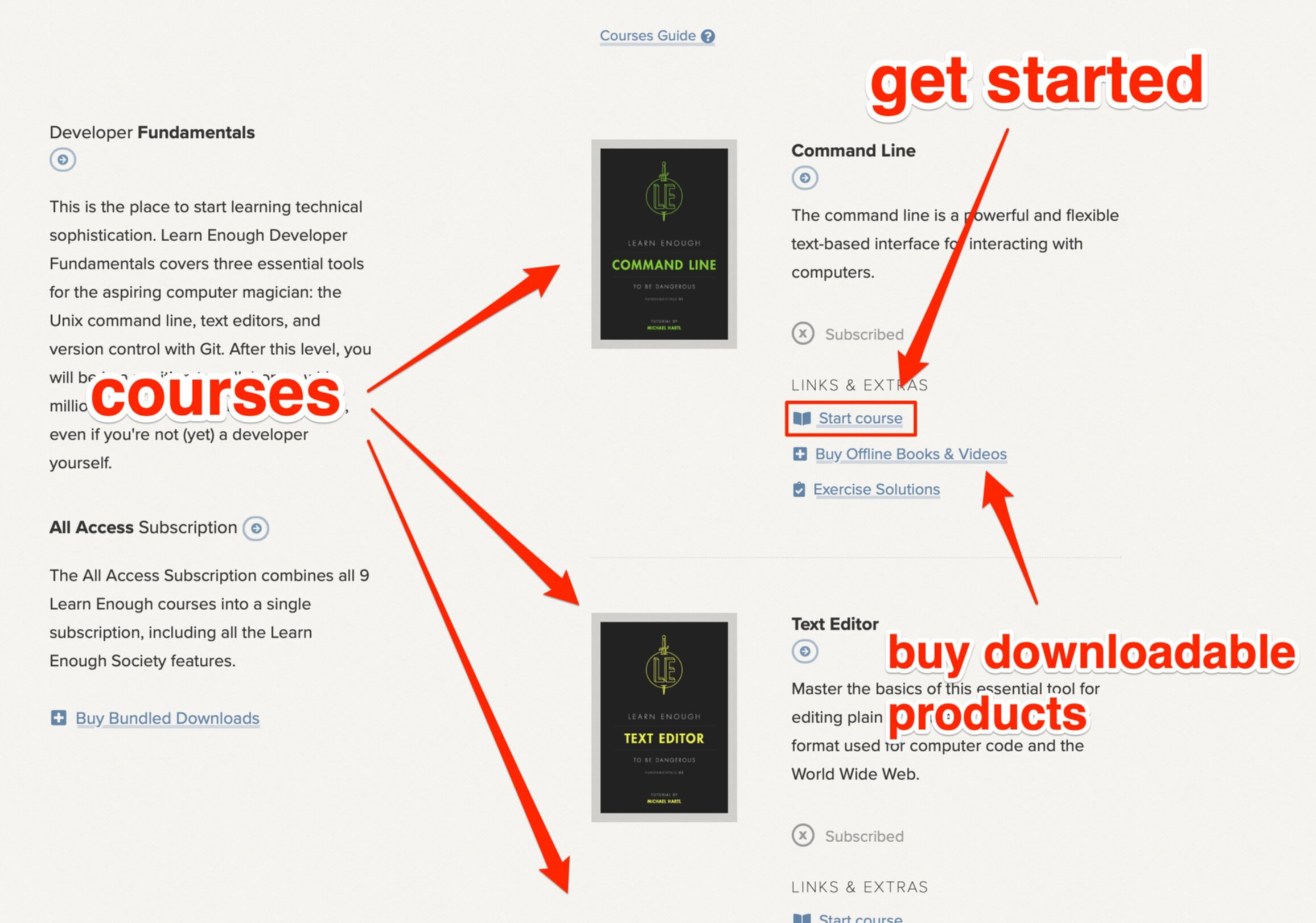
Why Learn to Code When You Don't Dev? Team Tips For 2024
Technology is essential in practically every industry today. As a result, possessing technical abilities has become increasingly critical—even for individuals who don't work in computer science or development.
While coding skills were once the purview only of professions in bespoke software development or information technology, they are now sought after in a variety of positions such as marketing, sales, finance, human resources, and operations. In marketing specifically, coding knowledge can empower professionals to better manage and analyze marketing topics, enhancing strategies and campaigns with data-driven insights.
At first glance, you may think coding skills aren't important to non-dev members, but the value of having these technical skills is second to none in improving communication across departments and the ability to make data-driven decisions. Additionally, you need to setup DMARC to boost email deliverability communication across departments and keep important company data secure from threats.
Learn Enough's Team Plan courses set your whole project team up with key programming languages and core programming skills, learning the same foundations in a shared online space.
In this article, we'll unpack the benefits of learning to code as a non-dev team and some of the essential tech tools that non-dev teams can utilize to improve workflow and overall performance.
Don't worry though, we'll keep it short and sweet when it comes to all that tech lingo. We're here to offer insight into the advantages and implications of learning to code as a non-dev team or team member.
The rise of coding literacy
Coding literacy has seen an incredible popularity spike in recent years. The demand for people with coding knowledge and abilities has reached new heights due to the incorporation of tech into every aspect of our lives.
Even traditionally non-tech roles require a bullet list of technology skills—because technology streamlines processes.
Nowadays, you needn't be pursuing a computer science degree to consider learning to code. People from all walks of life, of all ages and professions, have recognized the far-reaching benefits of coding literacy.
Why learn to code?
Coding literacy's importance in the future employment market is undeniable. As automation and artificial intelligence continue to alter sectors, there is an increasing demand for people who can comprehend and manipulate the technology underlying and representing these breakthroughs.
Coding fluency opens the door to lucrative careers in industries such as software development, AI app development, data analysis, data science, and cybersecurity—but it doesn't end there.
Coding literacy can also make you a better student, manager, marketer, consultant, and creative.
Understanding the basics of coding is the first step toward these exciting and dynamic career paths. For those wondering how to start coding, it's reassuring to know that there are plentiful resources available for learners at all levels. Starting with basic programming languages like Python or JavaScript can offer a hands-on introduction to the principles and problem-solving tactics that are crucial in coding.
Defining coding literacy
You may be wondering, "Well what exactly does the term coding literacy mean?". To put it simply, it's the ability to understand and write code.
The rising popularity of coding literacy can be linked to its employment market relevance, accessibility of learning resources, incorporation into education systems, and potential for personal and creative efforts.
In 2024, coding literacy is a vital skill that empowers individuals, preparing them for job opportunities in a future where technology permeates and pervades all industries.
The demand for tech skills across various industries
In recent years, the call for computer programming skills has steadily increased across multiple fields, and this trend is projected to continue.
Technology is progressively being integrated into all levels of business, creating a growing demand for people with experience in a variety of tech-related fields.
Key factors fueling the demand include:
Digital transformation: Organizations are undertaking digital overhauls to remain competitive in today's industry. Adopting new technologies, automating procedures, and employing data analytics are all examples of this. As a result, tech specialists who can drive and support these projects are in high demand.
Cloud computing: The adoption of cloud computing services has been rapidly increasing as it offers scalability, cost-effectiveness, and flexibility for web-based businesses, products, and services. Businesses are seeking individuals skilled in cloud platforms such as Amazon Web Services (AWS), Microsoft Azure, and Google Cloud Platform (GCP), as well as specialized PaaS options like Digital Ocean and Heroku.
Artificial Intelligence (AI) and Machine Learning (ML): AI and machine learning (ML) technology wasted no time infiltrating industries, including healthcare, finance, retail, and manufacturing. Professionals with knowledge of AI and ML techniques, data analysis, and model development are in high demand, as are creative, management, marketing, and editing professionals who can turbocharge productivity with AI tools. For example, an AI logo generator can significantly streamline the design process for marketing professionals, allowing them to create unique and engaging logos with the help of artificial intelligence. Besides, AI tools also play a crucial role in image editing by helping to remove unwanted clutter from your images. Additionally, there are many Reels editing tools with AI-powered editing features that can make your videos more engaging and professional. This advanced technology can analyze and identify unnecessary elements in a picture, enhancing its quality and aesthetics. As a result, professionals can focus more on creative aspects, leaving the technical nuances to AI.

Laying a foundation for coding literacy
When it comes to laying a solid foundation for coding literacy, it's best to start with the basics.
Learn Enough's Team Plan does just that, assuming zero coding skills to start, and beginning with the coding language "A, B, Cs".
Every subscription includes Learn Enough Ruby To Be Dangerous, a legendary tome from award-winning expert, Michael Hartl, that's proven to be a great starting point for all beginning software developers.
How coding and tech skills benefit non-dev professionals
Coding and tech skills give non-dev workers a broader, more diverse skill set, enhanced efficiency, and better problem-solving abilities, allowing them to flourish in their professions and contribute to their organizations' digital transformation.
1. Enhanced understanding of technical concepts
Coding helps non-devs think creatively and generate unique problem-solving solutions.
By combining domain knowledge with coding skills, they may generate fresh concepts and put them into action, thereby fostering innovation in their respective fields.
Languages like Python and Ruby are great starting points for non-dev members as seasoned computer programmers already use these programming languages frequently.
2. Improved collaboration with technical team members
Non-dev professionals with coding abilities can communicate more successfully with developers.
They can comprehend technical limits, participate in debates, and make significant contributions to initiatives.
This encourages improved collaboration between technical and non-technical teams, which leads to more successful outputs.
3. Streamlining project management and task delegation
Coding improves logical thinking and problem-solving skills.
Non-dev professionals can use these talents to examine complex problems, disassemble them into smaller components, and devise creative remedies.
This is important throughout the tech industry, as well as in project management, operations, and customer service.
For Tech With Tim's take on why you should learn to code, watch the video below.
Essential tech tools for non-dev professionals
Non-dev professionals can use the following essential foundations to improve organization, communication, productivity, creativity, and group work.
The following are some essential tech tools for non-developers:
1. Command Line and Git for version control and collaboration
Command line is a text-based interface for communicating with the operating system of your computer.
You can issue commands to operating systems by entering them manually in the terminal or command prompt rather than utilizing a graphical user interface (GUI). Command line can be used for folder management, making it easier to navigate through a computer's file system.
Git is a version control system that is widely used in the software development process.
While its primary aim is to aid developers in the management of source code, it can also be useful for non-developers in a variety of situations with its branching and merging functions, and its capacity to manage version control and projects in code, text, copy, and information.

2. HTML, Javascript, and CSS for web-related tasks
The three primary technologies used to make websites are HTML, JavaScript, and CSS.
While these languages are most typically used by web developers, non-developers (like marketers, editors, and site owners) can learn the fundamentals of these languages to make small changes to web design or understand how online pages work. To stay updated on the latest trends in web development, you can read more about these languages and their applications.
Here's a quick rundown of each language:
HTML (Hypertext Markup Language): HTML is the industry standard markup language for organizing and delivering web content. It specifies the elements and their arrangement on a web page. HTML is made up of tags that define the content's structure, such as headings, paragraphs, lists, images, and links.
For example:

JavaScript: JavaScript is a computer language that enhances web pages with interactivity and dynamic behavior. It lets you alter HTML components, manage user actions (like clicks), conduct calculations, and send HTTP requests. JavaScript code is normally included in an HTML file between script> tags.
For example:

CSS (Cascading Style Sheets): CSS is a style and aesthetic enhancement tool for HTML elements. It gives you control over a web page's layout, colors, fonts, and other aesthetic elements. CSS works by utilizing selectors to select HTML components and apply styles to them.
For example:

3. Ruby on Rails for project management and team collaboration
Rails is an open-source web application framework written in the Ruby programming language. It is designed to make programming web applications easier and more convenient by making assumptions about what every developer needs to get started.
It allows developers to write less code and accomplish more compared to many other languages and frameworks.
The emphasis on convention over configuration is one of the primary benefits of utilizing Ruby on Rails for project management, as it frees devs to innovate and focus on selling points.
Understanding the basics of Ruby on Rails can help non-developers communicate more effectively with developers. They will better understand the terminologies, processes, and challenges that developers face, leading to a smoother flow of information.
Managers who have a grasp of the technology stack their teams are using can make more informed decisions. They will understand the technical implications and feasibility of feature requests or project ideas.
For project managers, understanding the framework and the effort and resources required for different tasks in a Ruby on Rails project can help with project planning and resource allocation.
Non-developers with training in Ruby on Rails can help with quality assurance, as they will have a better understanding of how the application should function and what potential issues to look for.
How killer teams collaborate through code
Through the use of a variety of tools and best practices, teams can streamline their development process while collaborating through code.
Version control tools like Git, which allow several team members to collaborate on the same codebase at once, are one key strategy.
Developers can work on specific features or fixes while avoiding interfering with the work of others by employing branches, which then allow them to easily combine their modifications while writing code.
Here are some more specific ways how non-dev teams can utilize code:
1. Using Python for data analysis and visualization
Python is a remarkably flexible programming language with a vast selection of libraries and tools for data analysis, making it useful and approachable for non-developer professionals to evaluate project data.
Python's user-friendly syntax and intuitive modules like Pandas, NumPy, and Matplotlib enable non-dev professionals to import, modify, and visualize project data.
Pandas can be used to do calculations, organize the data, and extract pertinent information.
Matplotlib enables the construction of useful charts and graphs to visually portray data patterns, while NumPy offers robust mathematical functions and tools for numerical computations.
Additionally, the analysis process can be documented, discoveries can be annotated, and results can be shared using Jupyter Notebook, an interactive programming environment.
To learn how Python can be used to automate tasks, explore our latest posts.

2. Leveraging Ruby on Rails to streamline project workflows
Powerful web development framework Ruby on Rails is frequently used for task management and team collaboration. Its convention-over-configuration approach and clean and simple syntax enable developers to construct reliable apps rapidly.
Ruby on Rails is a great option for these uses since it has a wealth of features and libraries that are specially designed for task management and team collaboration.
Ruby on Rails allows for safe and effective team collaboration with integrated support for user authentication (based on OAuth/OIDC), authorization, and role-based access management.
Teams can use the framework's seamless connection with a variety of third-party products and services to make use of well-known task management and collaboration solutions.
With the help of its vast ecosystem of gems and plugins, developers can simply add features like real-time updates, notifications, and document sharing, which promote productive teamwork and efficient job management. So, it is easy to share PDF files with team members, for instance. And don’t forget that with a simple PDF editor, you can do things like merge files, add images, and insert and extract pages - all of which could enhance efficiency. If you need to convert image files to PDF, there are many convenient online tools for that purpose.
In conclusion
By now, it should be clear that there's a feast of benefits to be had from learning Python and other tech skills—especially as a non-dev team!
From practicality and career prospects to cognitive development and personal fulfillment, embracing technology and acquiring these skills will undoubtedly unlock new opportunities and empower individuals to thrive in the digital age.
If, after reading this article, you're wondering how exactly your team can best learn to code from scratch, Learn Enough's Team and All Access Plans offer access to the 14 foundational courses you'll need.
Furthermore, you'll get instant access to the full plan, but you won't have to pay for courses that don't get used.
These courses make it simple for everyone to learn at their own pace, with a structured approach to facilitating skill development and improved communication.
In closing, acquiring Python and other technical skills can be a rewarding and enjoyable process for any profession. You can keep your mind active and continually increase your knowledge by keeping up with the most recent trends and tools because technology is constantly improving.
As you overcome obstacles and come up with answers on your coding journey, the process of learning and using tech skills may be intellectually exciting and fulfilling.
There's never been a better time to build that technical knowledge and start coding, with tens of thousands of job prospects out there—and a bigger paycheck looming!
Frequently asked questions
Why should I learn to code?
Learning to code can significantly enhance your problem-solving and logical thinking skills. It opens up a wide range of job opportunities, often with great earning potential. Coding skills are highly transferable and relevant in many roles across various industries.
Moreover, coding knowledge can complement your current skills and sharpen your ability to work with data.
What are the benefits of learning to code?
The benefits of learning to code are numerous. It can lead to higher salaries, more job opportunities, and the ability to create and innovate with technology. Coding also improves interpersonal skills as it often involves collaborative work.
Furthermore, it teaches critical thinking, problem-solving, and creativity.
Can learning to code change my life?
Yes, learning to code can be life-changing. It can provide the freedom to make your own schedule, especially if you work as a freelancer or start your own business. It can also lead to higher earnings, even with fewer work hours.
Moreover, coding skills can provide job security in the increasingly digital world.
Where can I learn to code?
There are many resources available online to learn coding. Learn Enough is a great platform that offers comprehensive tutorials on various programming languages and tools, making it an excellent place to start your coding journey.
Is coding a necessary skill for everyone?
While not everyone needs to become an expert programmer, having a basic understanding of coding is increasingly valuable in many professions. Coding skills can help you understand the digital world better, automate tasks, and even communicate more effectively with technical teams.
All Access Subscription
Get free access to all 10 Learn Enough courses (including the Ruby on Rails Tutorial) for 7 days!
Free 7 Day trial details
We require a credit card for security purposes, but it will not be charged during the trial period. After 7 days, you will be enrolled automatically in the monthly All Access subscription.
BUT you can cancel any time and still get the rest of the 7 days for free!
All Learn Enough tutorials come with a 60-day 100% money-back guarantee.











